On the way to net zero - the example of fruit and vegetable marketer Schwab-Guillod AG
Switzerland wants to be climate-neutral by 2050. This means that greenhouse gas emissions must be reduced as much as possible and the remaining emissions offset. Reducing emissions is also an obligation for the economy. EnergieSchweiz, the Swiss Federal Office of Energy's funding programme for energy efficiency and renewable energies, is supporting so-called "roadmaps for decarbonization" for companies and industries this year. The fruit and vegetable marketer Schwab-Guillod AG from Müntschemier BE has drawn up such a roadmap.
Schwab-Guillod processes and markets fruit and vegetables that are produced in Switzerland or imported from abroad. Since its foundation in 1937, the company has grown considerably and now covers an area of almost 30,000 m2. All of the company's buildings are air-conditioned for specific products.
Sustainability is an important issue for the Seeland-based greengrocerSchwab-Guillod, which is located in the heart of Switzerland's vegetable garden. The company's own hydrogen filling station, which opened in 2021, is located on the edge of the company premises. Of the 50 trucks, one runs on hydrogen and seven on electric power. The vehicles are cleaned with rainwater. The forklifts in the refrigerated warehouses run on electricity. The disposable pallets are recycled in the wood chip heating system. Photovoltaic systems on the roofs supply electricity. All lighting has been converted to LED. And the water that the company uses to wash vegetables or salad is recycled.
What is a roadmap for decarbonization?
The roadmap includes a greenhouse gas balance of all operational activities and thus shows the company emission hotspots. Reduction targets are derived from this and a package of measures is drawn up to achieve the targets set. This enables the company to plan decarbonization with foresight.
You can find the factsheet here.
So the company has already taken some measures to reduce its own footprint. But is this commitment enough to ensure a CO2-free future for the company? Schwab-Guillod wanted to find out exactly and used the decarbonization roadmap to get an overview of the greenhouse gas emissions caused by the company. Doreen Domenge, Sustainability Officer, says: "We want to make visible what our company is doing to protect the climate." And she adds: "It's also about increasing credibility with our customers."
Transparency is becoming increasingly important for consumers. They want to know how products are manufactured and distributed. Information on the greenhouse gas emissions of the entire supply chain - from cultivation or production to sale in the store - is part of this. As a company, you are one wheel in an overall system. In concrete terms: if a company decides to take measures that also affect the supply chain, the suppliers are also required to do the same. Schwab-Guillod is also aware of this.
The inventory now shows how the company is doing, and there have been some surprising findings, says Doreen Domenge: "We knew that the emissions generated during the manufacturing and purchasing of products were high. However, we didn't expect it to be on this scale." Specifically, two thirds of total emissions. 5% of total emissions are caused directly within the company. These are emissions generated during transportation with the company's own trucks or during the burning of heating oil and wood.
Nevertheless, the company will not be inactive: "For the time being, we are concentrating on the emissions in our own operations, on what we cause ourselves," says Doreen Domenge. The diesel vehicles are to be gradually replaced by trucks with alternative drive systems by 2030 (see diagram). Further operational optimizations are planned: In the convenience department, for example, the water is to be preheated before the vegetables are cooked by connecting the steamer to the hot water network. "Our goal is to reduce our own emissions by 42% by 2030."

Graphic: act Cleantech Agency Switzerland
The report also lists possible measures that could reduce emissions that are not caused directly at Schwab-Guillod:
- Sourcing more products from companies with lower greenhouse gas emissions
- Avoid air transportation and source products with short transport routes. However, this should not lead to higher cultivation emissions (products from conventionally heated greenhouses instead of from overseas)
- Reduce packaging without affecting the shelf life of fresh products.
In the video interview, Sustainability Officer Doreen Domenge takes stock and explains why it made sense for Schwab-Guillod to draw up this decarbonization roadmap.
Schwab-Guillod AG delivers up to 1000 pallets of fruit, vegetables and ready-to-cook products on 6 days and in 2 shifts per day. During the summer season, vegetables and fruit come mainly from the surrounding fields and from all over Switzerland.
The new Climate Act makes the reduction of greenhouse gas emissions mandatory for companies. Article 5 of the Climate Act stipulates that all companies must have net-zero emissions by 2050 at the latest. As a minimum, direct and indirect emissions must be taken into account. To achieve the target, companies can draw up sector roadmaps. In future, these net-zero roadmaps will be a prerequisite if companies want to benefit from subsidies from the Climate Act. Article 6 of the Climate Act stipulates that industrial and commercial companies that use innovative climate-friendly technologies can apply for support. From 2025, CHF 200 million per year will be available. This support is limited to six years.
Paule Anderegg is a specialist in the Industry and Services Section of the Swiss Federal Office of Energy. Her section is responsible for the implementation of Art. 5 and 6 of the Climate Act, in cooperation with the FOEN.
Energeiaplus: The roadmaps for decarbonization will only be supported by SwissEnergy this year. After that, no more. Why?
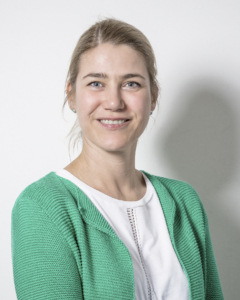
Paule Anderegg, specialist in the Industry and Services Section at the SFOE; Image: SFOE
Paule Anderegg: Companies that draw up roadmaps for decarbonization before 2025 are in a voluntary pioneering role. With the support of SwissEnergy, they should be encouraged in this process. When the Climate Act comes into force in January 2025, the net-zero roadmaps will be enshrined in law and support from SwissEnergy will therefore no longer be appropriate.
What projects have a chance of receiving support from the Climate Act pot?
The financial aid is intended for the use of innovative technologies or processes. These are technologies that are already available but have not yet found widespread use on the market.
The consultation process for the ordinance on the Climate Act is currently underway. This will specify exactly how innovation funding should be structured. The Federal Council is expected to adopt this ordinance in November and bring it into force at the beginning of 2025. What can companies that want to benefit from funding do now?
As you say, the conditions and requirements for funding under the Climate Protection Act have not yet been defined. The consultation responses are currently being evaluated.
Companies that want to apply for support under the Climate Act can already draw up a net-zero roadmap. That way, they will be prepared when applications for support can be submitted from 2025.
Text and interview: Brigitte Mader, Communications, Swiss Federal Office of Energy
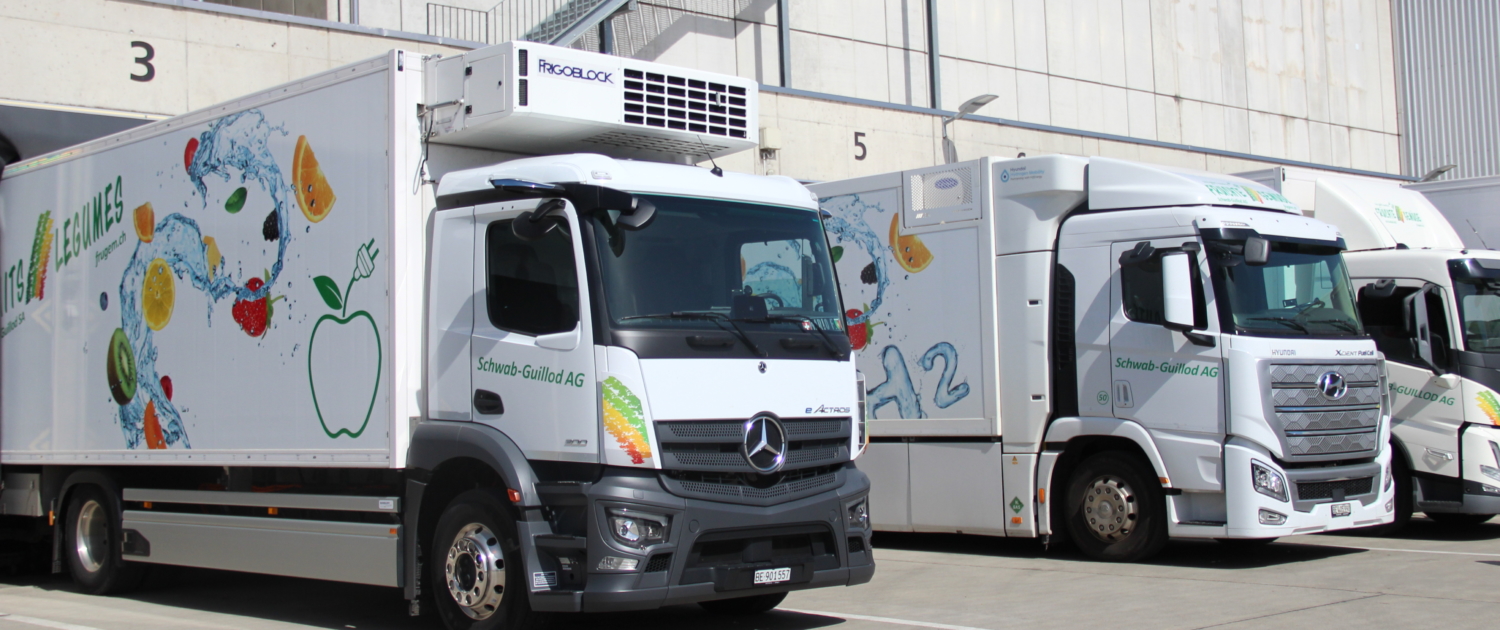 BFE - Brigitte Mader
BFE - Brigitte Mader
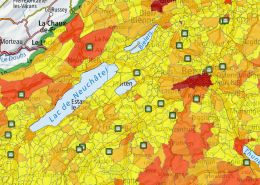 BFEOù sont les installations de biogaz ?
BFEOù sont les installations de biogaz ? 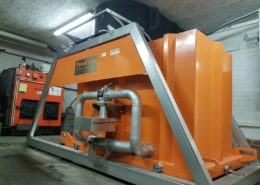 Fridolin HanelEnergie und Pflanzenkohle aus neuen Quellen
Fridolin HanelEnergie und Pflanzenkohle aus neuen Quellen  BBLSNBS- «Bauen für eine neue Generation»
BBLSNBS- «Bauen für eine neue Generation» 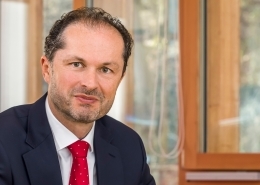 BFERetour sur 2018 avec Benoît Revaz
BFERetour sur 2018 avec Benoît Revaz 
 Regionalkonferenz Nördlich Lägern
Regionalkonferenz Nördlich Lägern keystone
keystone
Neuste Kommentare